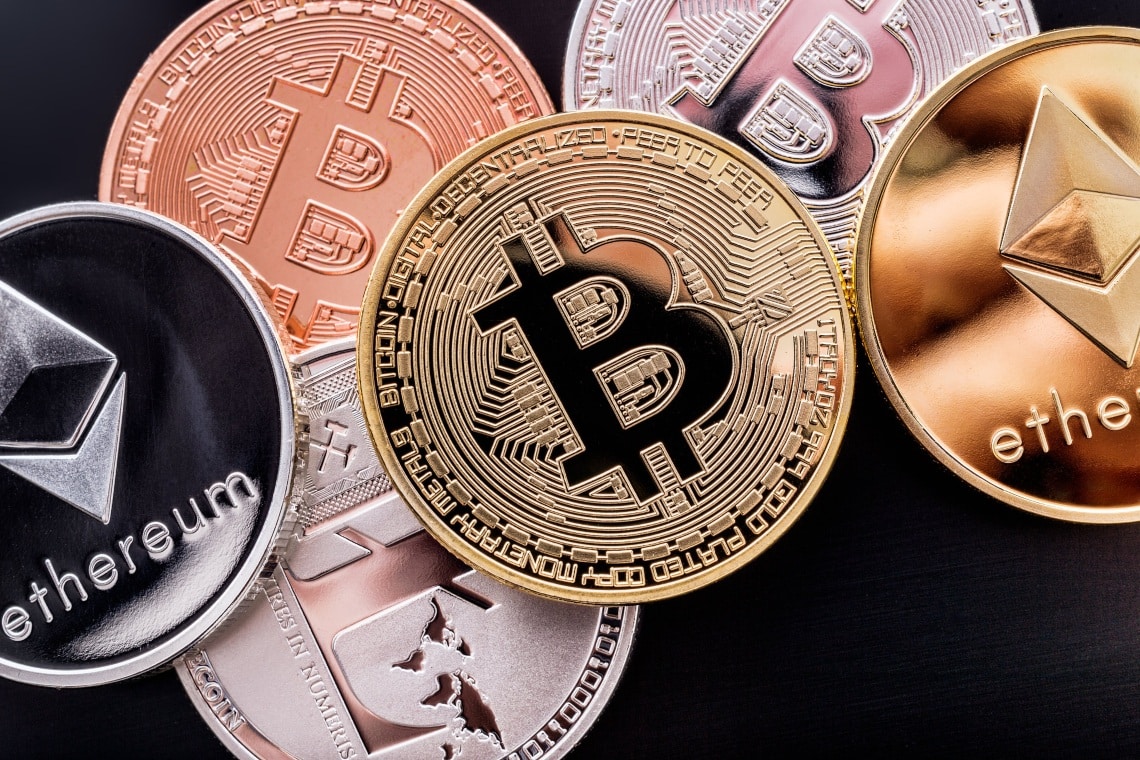Tokenization: conversion of US Treasury bonds worth over 1 billion dollars into digital forms and recorded on public blockchains. These tokenized Treasuries represent US government securities and are traded as tokens on the blockchain.
Let’s see below all the details.
Summary
Public Blockchains and the New Era of US Treasury Bonds: How Tokenization Works
As anticipated, the market for tokenized US Treasury debts is experiencing a significant expansion.
According to data provided by Tom Wan, an analyst at the cryptocurrency company 21.co, the total value of US Treasury notes tokenized on public blockchains such as Ethereum, Polygon, Avalanche, Stellar and others has recently exceeded one billion dollars.
These tokenized Treasuries are digital representations of US government securities, which can be traded as tokens directly on the blockchain.
The market value of this form of investment has increased by almost 10 times compared to January of last year.
Furthermore, it has recorded an 18% increase since the traditional finance giant BlackRock announced the tokenized BUIDL fund based on Ethereum on March 20.
Currently, BlackRock’s BUIDL fund, with a tokenized value of 245 million dollars, represents the second largest fund of its kind, surpassed only by the Franklin OnChain U.S.
Government Money Fund (FOBXX) by Franklin Templeton, which has a share represented by the BENJI token and holds a total value of 360.2 million dollars.
Record inflows in Bitcoin ETFs
According to Wan, the rapid increase in Treasury yields over the past two years has increased the demand for tokenized versions of such securities.
The driving force behind the trend is the increase in the 10-year yield, commonly known as risk-free rate, which has risen to 4.22% from the 1.69% recorded in March 2022.
This increase has influenced the attractiveness of loans and loans of stablecoins anchored to the dollar in the decentralized finance market.
The ETF market on Bitcoin has recorded net inflows of $243.4 million, while the value of BTC has predicted a surge to $72,000 the following week, after dropping below $63,000.
ARKB has become the third Bitcoin ETF to surpass this threshold in a single day, following BlackRock’s IBIT and Fidelity’s FBTC. FBTC hit a record low of 1.5 million dollars on Wednesday, while IBIT recorded inflows of 323.8 million dollars.
Bitcoin ETFs in the United States: Introduction of the Hashdex ETF
The United States has further expanded the offering of spot Bitcoin ETFs, bringing the total to eleven ETFs. This move comes more than two months after the launch of the first ten spot BTC ETFs.
The latest addition to the list is the Bitcoin Futures ETF from asset manager Hashdex, which is traded on the New York Stock Exchange since 2022 with the ticker DEFI.
This fund, now renamed Hashdex Bitcoin ETF, has been converted from a futures-based fund to a spot Bitcoin ETF.
Hashdex has announced through a press release that, unlike other spot Bitcoin ETFs, the DEFI can hold up to 5% of the fund’s assets in BTC futures contracts traded on CME.
This decision, according to the company, will allow DEFI to more accurately track the price of BTC over time and offer a more predictable fund creation/redemption process.
This approach, although new for Bitcoin ETFs, is widely used in other contexts, as demonstrated by the majority of S&P 500 ETFs.
Currently, the DEFI holds 5,500 BTC and a modest number of futures contracts. With an expense ratio of 0.90%, the fund is lower than the 1.50% of Grayscale Bitcoin Trust (GBTC), but higher than that of the other nine spot products.




